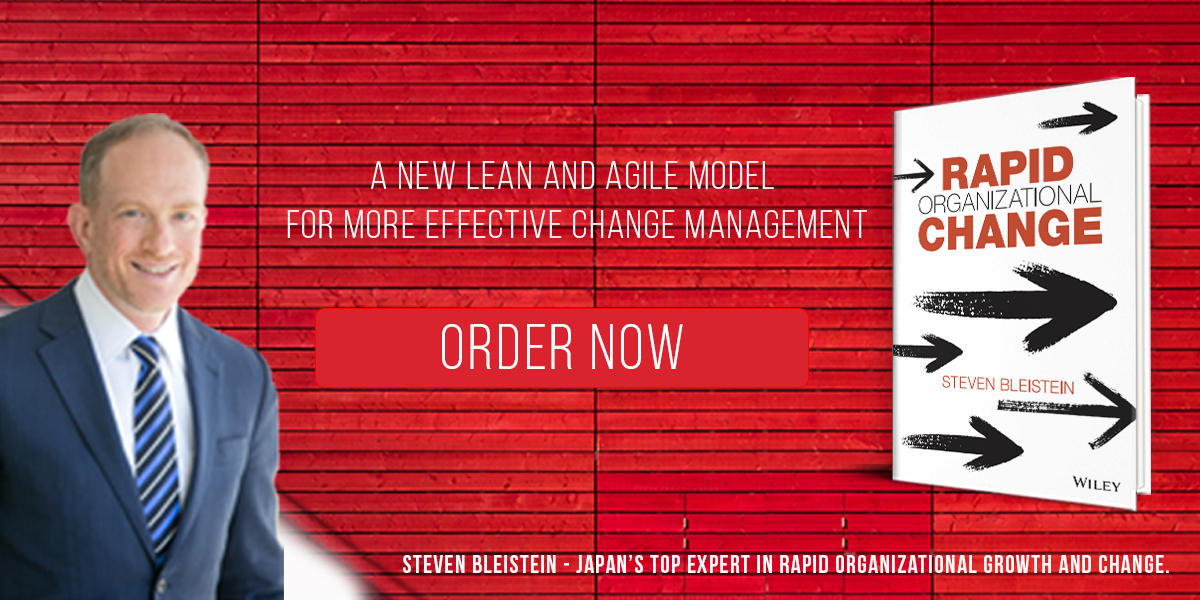[:en]Staff involvement in decision-making is useful means of ensuring buy-in and achieving success, as long as staff involvement does not entail abdication of your role as a leader. Not all staff involvement is good, and buy-in is not always imperative for success. Some decision are best taken unilaterally, and some changes are best imposed despite objections.
People act in their own best self-interest as they perceive it, and this does not always align with your best interest for the business, particularly when attempting strategic change.
You as a leader set direction as you see fit, even over objections and resistance. Share on XHowever, this does not mean that you cannot involve your staff and achieve the ever sought-after buy-in. The key is in how you involve your staff in the decisions at hand. My most successful client CEOs always make decisions of “whether” to do something unilaterally, whereas decisions of “how” to do it with staff involvement.
For example, a CEO client of mine decided that the company should drop a business line of trading in commodity products in order to make room for growth in their technologically differentiated product which the company produced. Sales managers balked at the suggestion. Half of sales were in the commodity line, and customers typically bought both.
“How will we make sales and profit quota? Will customers leave us? Will my bonus be cut? Will the company be forced to lay people off?” The sale staff ruminated on their fears. Their own perceived interests superseded the strategic business interests of the CEO.
The CEOs first inclination was to take the time to convince staff of the merits of the decision and getting buy-in before taking. However, this was unlikely to happen. The longer he waited, the more entrenched staff became in their position. In fact, the hesitation of the CEO became validation of their concerns. In the meantime, the company was missing out on business opportunity, and putting its future competitiveness at increasingly greater risk.
This is precisely the kind of “whether” decision that a leader must make unilaterally. Whether to drop the commodity product line was not a valid question to be put to staff. This decision is in the sole purview of the owners and leaders of the business. Yet “how” to go about doing it is precisely where to seek staff involvement. The CEO made the decision to drop the line, and worked with staff on the how. Initial resistance and fear gave way to productive action. Most bought into the decision and came up with great ideas for how to make the plan a success.
There is nothing wrong with consulting with your staff to help you make a decision related to strategic change. However, you make the decision as you see in the best interests of the business. Lack of buy-in should never be the deciding factor or a reason for delay. Yet once you have decided, involve your staff in the how. [:ja]何か決定をする時にスタッフにも参加してもらうのは、決定事項に対する賛同を得、またそれをうまく達成するために、有効だと言えます。もちろんそのためにあなたがリーダーとしての役目を失う必要があったりする場合は別ですが。スタッフの参加が必ずしも良いとは限りませんし、彼らの賛同を得ることも常に必要というわけではありません。事項によってはまず一方的に決定した方が良いですし、いくら反対意見があったとしても実行させるのがベストなことだってあるのです。
[:ja]何か決定をする時にスタッフにも参加してもらうのは、決定事項に対する賛同を得、またそれをうまく達成するために、有効だと言えます。もちろんそのためにあなたがリーダーとしての役目を失う必要があったりする場合は別ですが。スタッフの参加が必ずしも良いとは限りませんし、彼らの賛同を得ることも常に必要というわけではありません。事項によってはまず一方的に決定した方が良いですし、いくら反対意見があったとしても実行させるのがベストなことだってあるのです。
人というものは大体自分の利益になると思うことに基づいて行動します。そしてその行動はビジネスにとっていつも良いものであるとは限りません。特にこれは戦略的な変化を実行しようとしている時などによく見られます。そんな中でも、あなたがリーダーであれば、反対や抵抗に会おうとも、正しいと思われる方向に舵を切らなければなりません。でなければ、正しいことを行ったとは言えないのです。
しかし、だからといってスタッフに参加してもらい、その賛同を得ることができないというわけではありません。大切なのは、目の前の決定事項について、どのような形でスタッフに参加してもらうか、ということです。かなりの成功を収めている私のクライアントである某社長は、何かを実行するかどうかを決める時は自分で行い、それをどのようにして実行するかは、スタッフと共に決定しています。
私のクライアントの他の社長の例を挙げましょう。彼はある時、自社の作る技術的にユニークな製品を伸ばす余裕を作るために、それまで扱っていた一般商品流通のビジネスをストップすることを決めました。当時、その一般商品は総売上の半分を占めており、顧客は一般商品とそのユニークな製品の両方を買うことが普通でしたので、この社長の決定を聞いた営業マネージャー達が驚いたのはいうまでもありません。
「それで、売り上げと利益のノルマをどうやって達成できるのか。顧客が離れていく可能性だってある。自分のボーナスは削減されるかもしれないし、そのうちレイオフだって必要になるんじゃないだろうか。」この決定は、営業スタッフを不安に陥れました。社長の決定がビジネス戦略の上で利益になるかどうかより、自分たちの利益にどう影響してくるかで頭が一杯になったのです。
社長はまず、時間をかけてスタッフにこの決定の利点を説き、実行する前に賛同を得ることを考えました。しかしこれはまず無理な話です。長く待てば待つほどスタッフの反感は強固なものとなっていきました。実際のところ、社長が躊躇する様子はスタッフの心配内容を裏付けるように映ったのです。こうしている間に会社はビジネスの機会を逃し、将来の競争力をどんどん大きなリスクに晒していきました。
こういうシチュエーションこそが、リーダーが一方的に「実行するかどうか」を一方的に決定すべき時なのです。「一般商品のラインをやめるかどうか」などといった質問は、スタッフにするべきものではありません。ビジネスのオーナーとリーダー達の間のみで決定すべきです。そしてどのようにしてそれを実行するかということこそが、スタッフに参加を求めるべき事項です。この社長もこの商品ラインをストップする決断を自分で下し、そのやり方についてはスタッフと協力して考え、実行することにしました。最初こそスタッフからの抵抗や不安が聞かれましたが、それもいつしか生産的な活動を行うことで、消えていきました。結局その多くは決定事項に賛成し、それを成功へと導くための素晴らしいアイディアを出してくれたのです。
会社で戦略的な変化をもたらすための決断を下す時、スタッフに相談することが悪いというわけではありません。ただ、自分の決断がビジネスにとって一番良いものであるようにすることは忘れないようにしましょう。スタッフからの賛同を得られないからといって、決断を先延ばしにすることは禁物です。決断をまず下し、その後でどのように実行するかを決める時にスタッフに参加してもらえば良いのです。[:]


